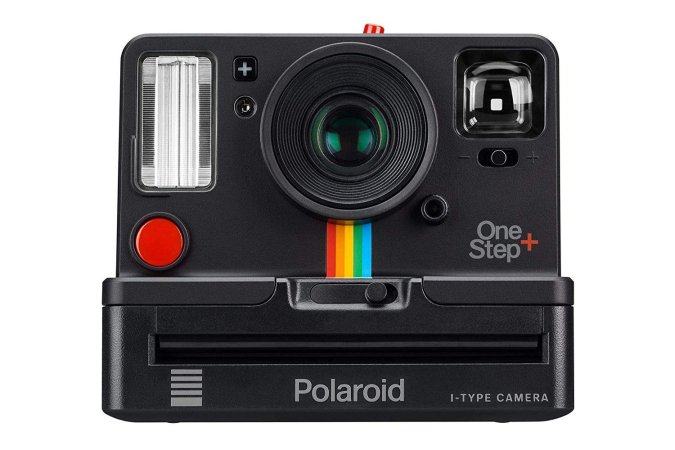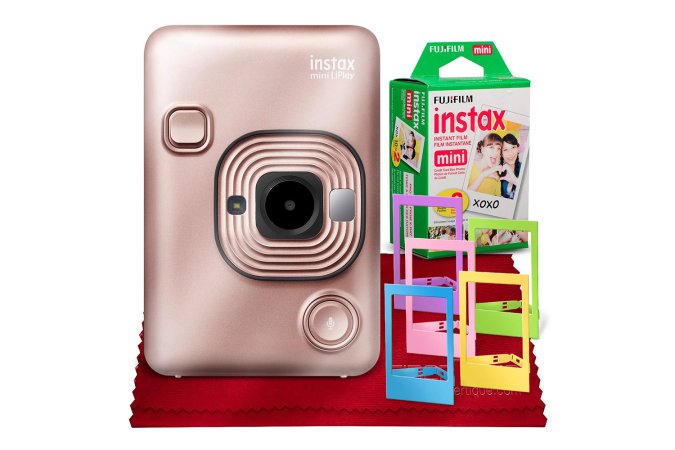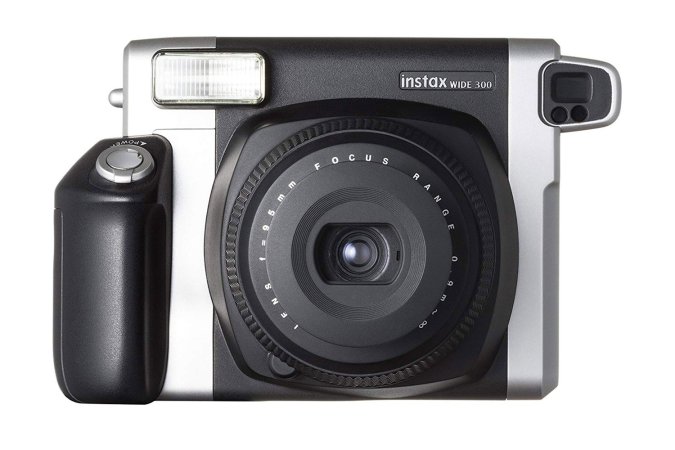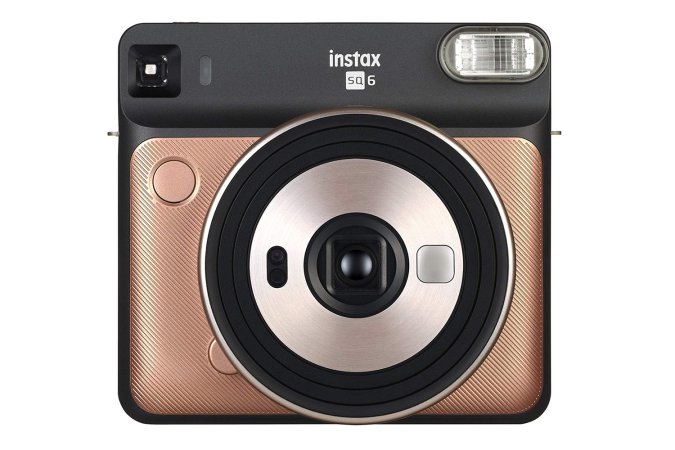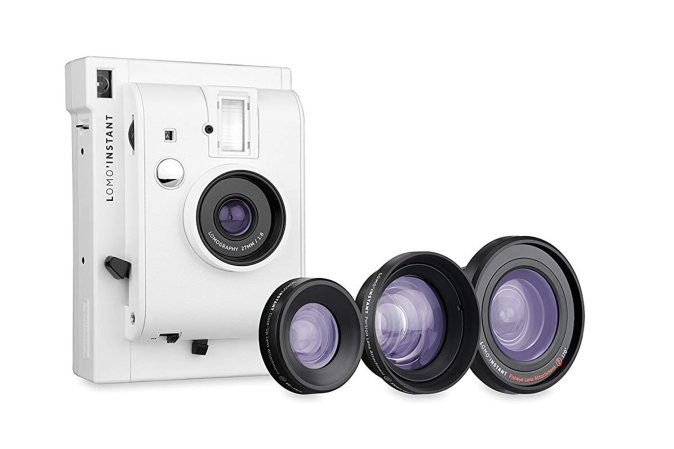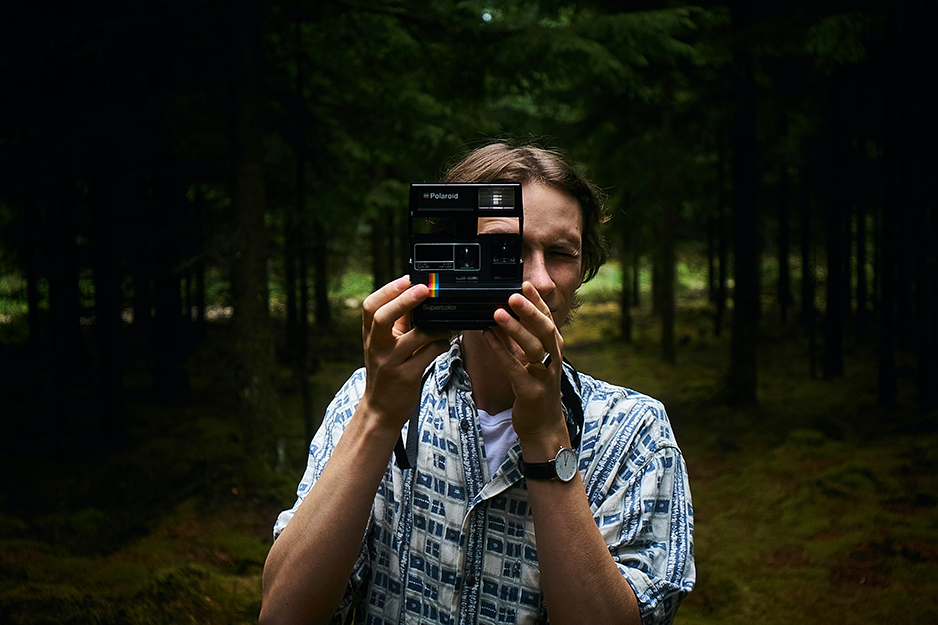

We may earn revenue from the products available on this page and participate in affiliate programs. Learn more ›
This story was originally published by Popular Photography.
When Polaroid introduced the one-step process in 1947 it revolutionized the way people approached photography. Now that everyone has a high-quality camera in their pocket, the meaning of “instant photography” has changed drastically, but there is still something wonderful about taking a photo with an instant camera and watching the image slowly appear on a print before your eyes. There are currently tons of options a few different film formats. These are some of our favorites.
The Polaroid Originals OneStep+ is an instant camera with built-in Bluetooth. Connect it to the smartphone app to enable light painting and creating double exposures on Polaroid’s I-Type instant film, which is larger than the versions offered by Instax. The camera design borrows heavily from the original OneStep released in 1977, although there are some key differences. On the back of the camera you will find a large viewfinder, a USB charging port, and anon and off switch. On the front of the camera you will find the button to activate the camera’s Bluetooth, which allows it to communicate with the app. he app features remote shooting, self timer, double exposure, light painting, noise trigger, and manual mode.
Fujifilm’s newest Instax is a true hybrid camera that combines Fujifilm’s instant film cameras and its Instax printers. It can also record sound for up to 10 seconds. The Instax Mini LiPlay is built around a 1.5in CMOS sensor, has a 2.7 inch LCD monitor. Built in memory can store approximately 45 files, but a microSD cards slot allows for expansion. Integrated digital filters and frames, remote shooting options, smartphone printing, sound recording add flexibility when you shoot. It has a dedicated app, although the LCD screen makes the process of shooting Instax frames a little more predictable. The camera has a 28mm F/2.0 fixed lens. It is available in three colors.
The Fujifilm Instax Mini 70 camera comes in a variety of colors, has a sharp lens, a bright flash, and is super simple to use. Exposure is fully automatic, but the results are always very consistent, because of that these are great for kids, casual shooting, or guests at a party or wedding. It shoots Instax Mini format and has a few creative modes: Macro, Landscape, Selfie, Self timer and ‘High-key’ mode. It’s relatively inexpensive, lightweight, and so easy to use that anyone can shoot with it.
The Fujifilm Instax Wide 300 is the current standard when it comes to shooting Instax Wide film. Similar to the Instax Mini 70, its consistent and turns out good results even if you’re just pointing and shooting. The camera has automatic exposure controls, but you can lighten or darken the picture with a simple switch. The camera is a little bulky, and feels plasticky in your hands, but the lens is sharp, the flash is bright, and it’s simple to operate. The wide frames give you a bit more flexibility when shooting portraits.
The Fujifilm Instax SQ6 is Fujifilm’s most fun square camera. It can shoot in double exposure mode, macro mode, landscape mode, and selfie mode. It comes with colored filters to add creative pops of colors to your film photos. It’s larger than the Mini 70, but just as fun and easy to use. The square format feels more like classic Polaroid from the past.
Lomography Lomo'Instant
This is Lomography’s only camera that shoots the Instax wide film. It has a 90mm built-in lens, but comes with a close-up attachment lens, and ultra wide-angle attachment lens, a Splitzer accessory for creating multi-exposures, flash gels, and a lens cap that can be used as a trigger for the camera. The camera has some manual controls, you can fully disable the flash and shoot in three modes: Auto, Bulb and 1/30 sec. The camera has three focus zones: 2ft, 3.3-6ft, and infinity. Admittedly, the focusing system is finicky. Our favorite frames came when we were shooting Auto mode. It’s quite chunky compared to some of the other cameras, but the wide frames are a delight.
The Lomography Lomo’Instant Automat shoots Fujifilm’s Instax Mini format. It’s one of Lomography’s most compact Instant camera, comes in a variety of colors, and looks more polished than the Lomo’Instant Wide. The camera comes with a wide-angle lens attachment, a close-up lens attachment, a fisheye lens attachment, color gels, a Splitzer for multiple-exposures, and a lens cam that can trigger the camera. The camera has automatic and bulb exposure modes, allows for exposure compensation and some flash control. It has a straight-forward zone focusing system.
The Leica Sofort shoots Instax Mini film and occupies the upper end of the Instant camera spectrum, although spec wise it’s pretty similar to the Fujifilm Instax 90. It comes in three colors, is super lightweight, and has a ton of creative modes. There are settings for macro, bulb, self timer, double exposure, selfie mode, sports mode, party mode and people mode. An LCD on the back indicates which mode you have selected. The Sofort allows for more control over flash output, exposure compensation, and focusing distance too. It’s pricier than a lot of the other options, but perhaps the most dapper camera of the bunch.
